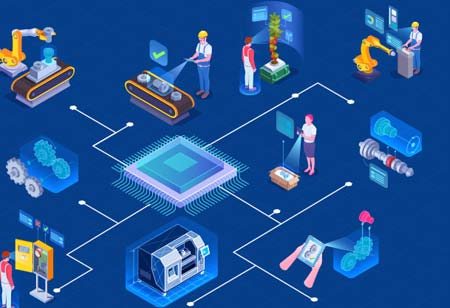THANK YOU FOR SUBSCRIBING
A Close Look into the Future of HPC for Manufacturing
Today's manufacturing IT systems must analyze massive amounts of complex data while also powering 3D modeling and simulations to optimize the entire process from design to production to operations

By
Apac CIOOutlook | Wednesday, October 06, 2021
Stay ahead of the industry with exclusive feature stories on the top companies, expert insights and the latest news delivered straight to your inbox. Subscribe today.
Today's manufacturing IT systems must analyze massive amounts of complex data while also powering 3D modeling and simulations to optimize the entire process from design to production to operations.
FREMONT, CA: High-Performance Computing (HPC) has gone mainstream, forever altering the engineering and design worlds. HPC systems with Computer-Aided Engineering (CAE) software are increasingly being used for high-fidelity modeling and simulation in the automotive, discrete manufacturing, aerospace, and healthcare robotics industries, to name a few.
Furthermore, there is a symbiotic relationship between HPC-powered CAE and Artificial Intelligence (AI), where simulations generate tonnes of data, and AI models apply data analytics iteratively for even higher quality simulations. This integration of CAE and AI speeds up product development and improves quality, but it necessitates scalability at all levels to address the big data, and big compute challenges, necessitating a High-Performance infrastructure.
Today's manufacturing IT systems must analyze massive amounts of complex data while also powering 3D modeling and simulations to optimize the entire process from design to production to operations. HPC, whether on-premises or in the cloud, is now a pervasive, integral part of most engineering operations, particularly as engineers use multiphysics simulations to address increasing design complexities. Manufacturers and suppliers can now reap the fundamental benefits of the next industrial revolution by designing, simulating, and optimizing products and processes to reduce risk, reduce costs, and outflank competitors. According to a recent study, for every $1 invested in HPC in Manufacturing, $83 in revenue and $20 in profit are generated.
Lenovo believes that by utilizing HPC, manufacturers of all sizes can gain valuable insights from their data. In 2019, Lenovo announced the "From Exascale to EveryscaleTM" initiative, which will use Exascale level HPC technologies and innovation to assist customers, including manufacturers, in accessing and leveraging HPC regardless of size.
Further, Lenovo has teamed with Intel to help enterprise customers generate fast, efficient insights by adopting HPC innovation and exascale technology without cratering budgets.
Together, we deliver an optimized architecture that drives increasing levels of performance, density, and efficiency within the HPC domain. Additionally, Lenovo has teamed with the industry's leading ISV software vendors, including ANSYS, Dassault Systems, Siemens, Nastran, Altair, and others, to perform Finite Element Analysis (FEA), Computational Fluid Dynamics (CFD), Multibody Dynamics (MBD), and more.





